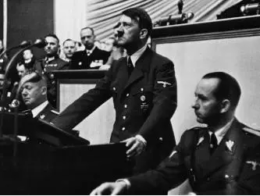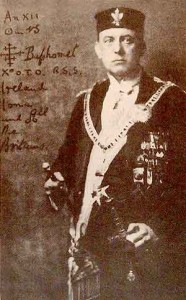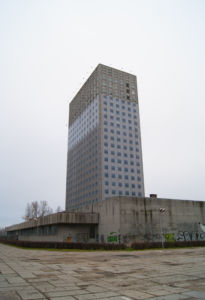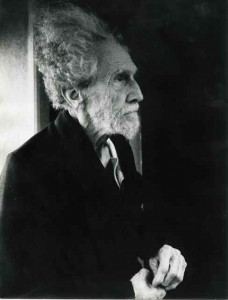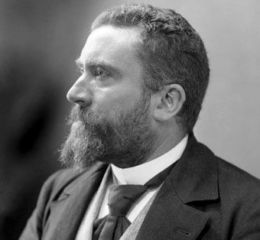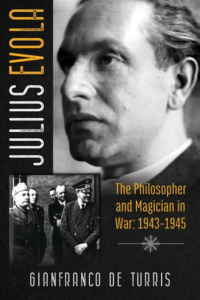Tag: Benito Mussolini
-
2,746 words
Part 5 of 5 (Part 1 here, Part 4 here)
A German war with Poland was now a certainty, but a new continental war involving Britain and France was not. The most important obstacle to the widening of the conflict was that Britain quietly viewed French participation as an indispensable precondition of her own involvement, and the French had not committed themselves to action against Poland. (more…)
-
1,907 words
Part 4 of 5 (Part 1 here, Part 3 here, Part 5 here)
Hitler’s cancellation of military operations for August 26 left him with only five days before September 1, after which, according to his generals, a military campaign in Poland would no longer be feasible. If war was to be prevented, it had to be done within this time. (more…)
-
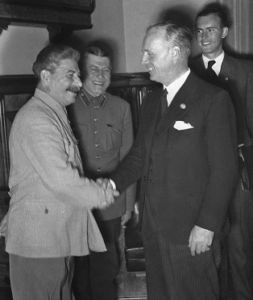
Joseph Stalin and Joachim von Ribbentrop during the signing of the German-Soviet Non-Aggression Pact on August 23, 1939.
1,852 words
Part 3 of 5 (Part 1 here, Part 2 here, Part 4 here)
By August 1939, everyone understood that a war between Germany and Poland was extremely probable. The great question was whether it might still be prevented from developing into a general European war. Hitler was under an important time constraint: since October rains transform Poland into a sea of mud, German military leaders warned him it would be unsafe to postpone the launch of hostilities past September 1. (more…)
-
4,041 words
Part 2 of 5 (Part 1 here, Part 3 here)
Given that both the United States and the Soviet Union were far larger and more powerful than Germany, and that the British themselves were still presiding over an enormous empire, one may wonder why Britain’s leadership was in such agreement on the supposedly urgent need to resist a far smaller power’s efforts to consolidate more of the German-speaking population of Central Europe within her borders. (more…)
-
November 22, 2023 Kerry Bolton
Aleister Crowley jako politický teoretik
část 22.547 slov
English original here
Thelemský stát
Podoba thelemské vlády je do jisté míry nastíněna v Knize zákona jako svébytná forma korporativismu: „Stav mnohosti ať je spoután a mějte jej v ohavnosti: ty nemáš jiného práva, než konat svoji vůli“. 1] V protikladu k anarchistickým či nihilistickým výkladům thelemské zásady „konej svou vůli“ však Crowley definoval thelemský stát jako dobrovolné sdružení pro blaho celku. (more…)
-
4,453 words
Part 2 of 2 (Part 1 here)
It is during and after the First World War that reinforced concrete was incorporated into political programs as a “progressive” building material. The Futurist Antonio Sant’Elia inspired an entire generation of so-called “brutalists”: Le Corbusier, Buckminster Fuller, and members of the movement called De Stijl. Jappe cites Futurist proponents of concrete cities: (more…)
-
1.812 slov
English original here
Historická fakta obvykle bývají podstatně paradoxnější a zajímavější, než následně o nich vytvořené mýty. Při čtení vynikající sbírky esejí Julia Evoly jsem narazil na fascinující baronův rozhovor s jiným aristokratem a dlouholetým propagátorem „evropského federalismu“, hrabětem Richardem von Coudenhove-Kalergi. (more…)
-
October 21, 2022 Michael Collins Piper
Co Ezra Pound doopravdy řekl?
2.089 slov
English original here
Americký básník a ikonoklasta, barvami hýřící Ezra Pound, jeden z nejvlivnějších umělců své generace, byl v letech 1945-1958 po obvinění z velezrady držen ve washingtonské psychiatrické léčebně. Pound se provinil jen tím, co dělal odjakživa: otevřeně říkal, co měl na srdci. Ke své škodě se však Ezra Pound za války ve svých rozhlasových pořadech z Itálie pustil do kritiky americké vlády, za což musel logicky skládat účty. Byl Ezra Pound prachsprostý vlastizrádce, nebo naopak prorok? Přečtěte si jeho slova a posuďte to sami. (more…)
-

The jury is still out as to whether Giorgia Meloni, who may become Italy’s new Prime Minister after Sunday’s elections, is the new Mussolini. Photo: Wikimedia Commons

The jury is still out as to whether Giorgia Meloni, who may become Italy’s new Prime Minister after Sunday’s elections, is the new Mussolini. Photo: Wikimedia Commons
1,408 words
Look out — here comes Hitler in a bra.
On Sunday, Italian voters are expected to propel a “far-Right” coalition led by a saucy and fetching 45-year-old woman into power.
Almost exactly one hundred years since Benito Mussolini took charge of Italy’s government, headlines for both UPI and the Guardian warn, in the exact same words, that Giorgia Meloni could “become Italy’s first far-Right leader since Mussolini.” (more…)
-
2,376 words
Note: This essay is occasioned by the new Imperium Press edition of Sorel’s Reflections on Violence, which is required reading.
Like Jack London, Georges Sorel (1847–1922) was a Left-wing writer whose primary influence today is on the Right. Sorel’s most influential book is Reflections on Violence, written in 1905–1906. (more…)
-
September 1, 2021 Collin Cleary
Gianfranco de Turris — Julius Evola: Filozof a kouzelník ve válce (1943-1945)
English original here
Gianfranco de Turris
Julius Evola: The Philosopher and Magician in War: 1943–1945
Rochester, VT: Inner Traditions, 2020Tento anglický překlad díla Gianfranca de Turrise Julius Evola: Un filosofo in guerra 1943–1945 přichází v příhodný čas, protože ukazuje, jak se velký muž vyrovnává se zhroucením společnosti i osobní tragédií. (more…)
-
Whenever the self-proclaimed “progressives” lose a power play they suddenly experience a collective sphincter muscle collapse and react as if they’re teetering on the brink of an apocalypse, as was in stark evidence after Donald Trump derailed Hillary Clinton’s “The Corruption Express” headed for the White House Station. The Hollywood idiots, of course, were apoplectic. The outpouring and duration of mass hysteria in the aftermath of the 2016 election were unprecedented.
We’re still feeling the aftershock (more…)

